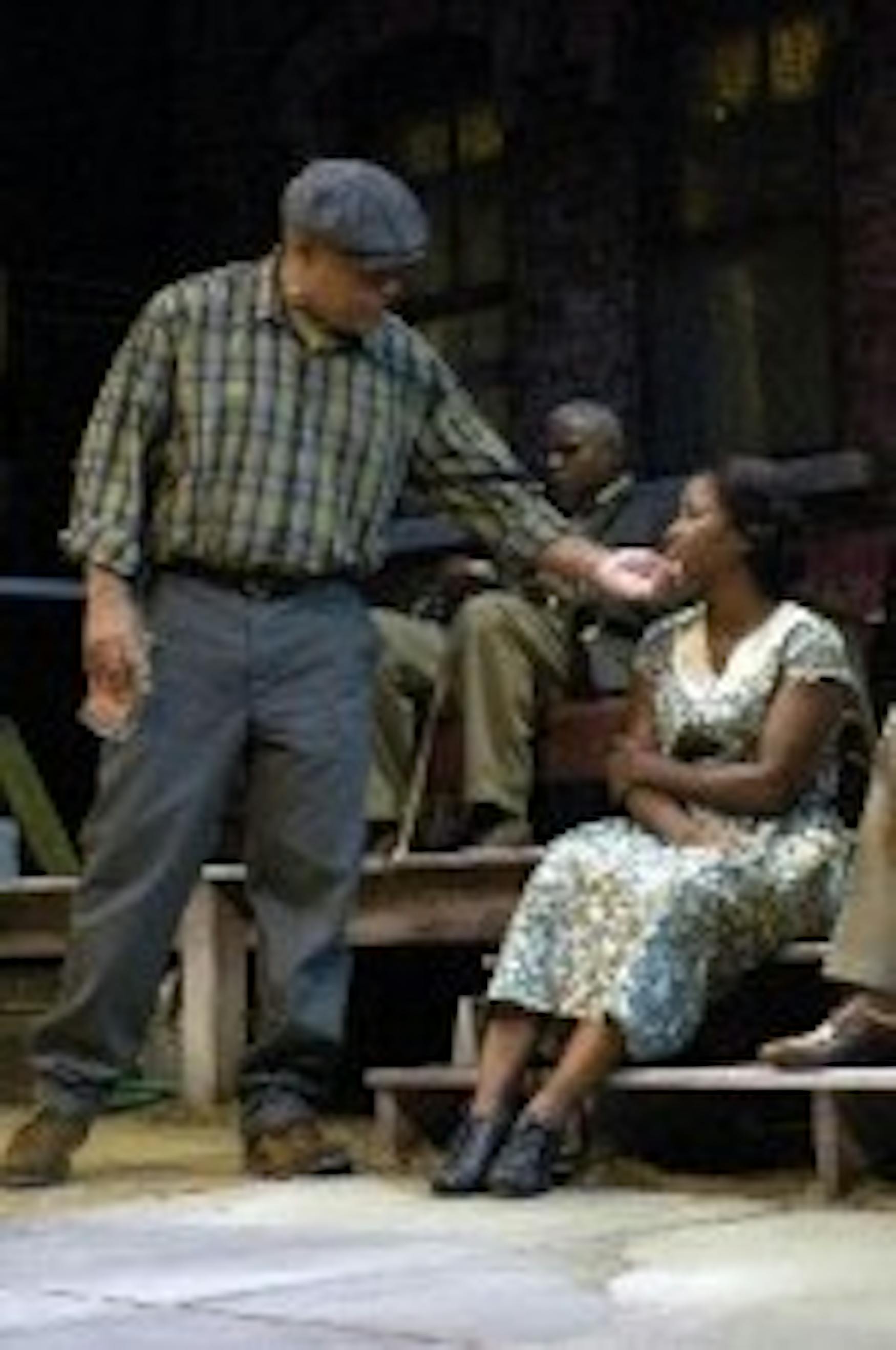Leon's 'Fences' is laudable
The sixth play in August Wilson's epic Pittsburgh Cycle, Fences opened the 2009 to 2010 season at the Huntington Theatre Company, and the acclaimed production hasn't lost steam since its opening Sept. 11. With discount ticket offers, it's well worth catching before it closes Oct. 11.The Pittsburgh Cycle is perhaps one of the greatest American dramatic works. Each of the plays, one for every decade of the 20th century, penetrates the very soul of the African-American experience. They explore, often humorously, race relations, family and our relationship with history. Fences, written in 1983, earned Wilson his second Pulitzer Prize for Drama (his first was awarded for The Piano Lesson).
Set in 1950s, Fences is the story of Troy Maxson (John Beasley), once a great Negro League Baseball player, whose bitterness about the past infects his family and friends. He is a tragic figure, and Beasley's performance is as grounded as it is rich with grit and heartache. And although Beasley has little in common with the booming presence of James Earl Jones, who won a Tony for his portrayal of Maxson on Broadway, he is just as masterful and is a force to be reckoned with.
The ensemble also includes Crystal Fox as Rose, Troy's wife of 18 years. Fox's performance is as solid as her character's devotion to her husband and her son Cory, aptly played by Warner Miller. Bill Nunn, Eugene Lee and Brandon J. Dirden complete the cast as Troy's apparently mentally disabled brother, Gabriel; his best friend, Jim Bono; and his son from a previous marriage Lyons, respectively. Faith Lambert and Hyacinth Tauraic alternate in the role of Raynell. The entire cast is excellent, capturing the humor and sorrow of Wilson's text. Their artistry makes the intricate rhythms of the period's dialect sing.
This is not particularly surprising considering that the production's director is Kenny Leon, who collaborated with Wilson before he died and has directed all of Wilson's plays. Leon is also responsible for the 2004 Broadway revival of A Raisin in the Sun, (yes, the one with Sean "Diddy" Combs). He has once again assembled a knockout cast here; if what they say is true and directing is 90 percent casting, then Leon gets an A.
Still, not every aspect of the production shone as brightly as the ensemble. Transitions felt clunky, either painfully slow or haphazardly rushed. Marjorie Kellog's massive set and Anne Wrightson's lighting were richly textured and served the play by primarily focusing the action on a surprisingly large stage. Yet both design elements, despite imposing such a large physical presence in the space, did not adequately keep the play's temporal shifts grounded. Night turns to day, weeks pass, several years go by-and yet this is hardly acknowledged in the set and lighting. It is chiefly through the skill of the actors in this production that we follow the changes in season and their characters' changes of heart.
Like its older cousin Death of a Salesman, Fences is an incredible domestic drama. However, Fences seems somehow more heartening, and for all its sorrow, more optimistic. In both plays, a man's infidelity and bitter relationship with his past threaten to destroy the family he has worked so hard to maintain, but the characters in Fences have a much stronger sense of their own past, and thus their stories carry a much richer historical context and dramatic life. In the end, another generation picks up the torch, racing across boundaries to carry light into the future.
Fences runs through Oct. 11 at the Boston University Theater on the Huntington Theater's main stage, Monday through Thursday nights at 7:30 p.m. and Friday and Saturday at 8:30 p.m. Matinees take place on select Wednesdays, Saturdays and Sundays at 2 p.m.
Tickets are available online at Huntingtontheatre.org; $15 student rush tickets are also available two hours before curtain at the box office.



Please note All comments are eligible for publication in The Justice.